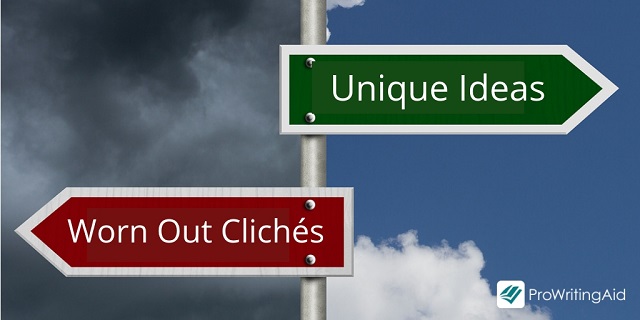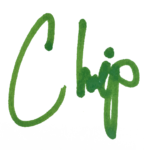
Have you ever started a story this way:
“It’s that time of year again.”
“Webster’s defines…”
“It was the best of times. It was the worst of times.”
“This is a story about…”
“…takes no holidays.” Fill in the blank” Death, Crime. I confess I wrote a story that began “Fire takes no holidays.” My only excuse: I was young and very stupid.
How about a line that follows a lead about a person who exemplifies a trend:
“… is not alone,” as in “Chip is not alone. He’ one of millions of people worldwide who think their ideas are worth blogging about”.
Does your novel or screenplay feature a rebel without a cause, a snarky girl who saves the day, or estranged parents brought together after their child is kidnapped?
Every one of these examples is a cliché, a tired, overused phrase, or stereotyped plot or character that are the refuge of writers too lazy or weak to come up with something original. They’re annoying, too.
Clichés are flabby. They weaken the power of prose. They can cost you readers who are looking for writing that is fresh.
Paint-by-numbers Writing
In “The Sound on the Page: Great Writers Talk about Style and Voice in Writing,” the finest book on style on my bookshelves, Ben Yagoda defines cliché, broadly, as “the use, either unconscious or in an attempt to write colorfully or alluringly, hackneyed or worn out words, phrases, or figures of speech.”
- Yada yada yada
- Only time will tell
- Back in the day
- Mother of all…
Clichés are an understandable refuge when you’re struggling to make meaning out of words, especially on deadline.
When you’re drafting a story, the public domain of words and phrases from popular culture automatically pops into the top of your conscious mind. Before you throw in the towel give up and throw your laptop out the window, cut yourself some slack, don’t be too hard on yourself. In a way, reliance on clichés is not your fault.
“Clichés are prominent features of everyone’s first drafts…” Yagoda writes. “How could they not be? We hear and read them all the time and our brains are filled with them.”
“You can certainly get your point across through clichés,” he concedes. “Iindeed, part of their appeal is the way they allow a nearly effortless, paint by numbers communication.”
But clichés are deadly, and “their first victim,” he says, “ is thought.”
Clichés deaden the mind. They ignore the reader’s demand for originality.
Too many writers choose ready-made prose, George Orwell says in his influential 1946 essay, “Politics and the English Language,” “gumming together long strips of words which have already been set in order by someone else.”
In Orwell’s oft-quoted list of writing rules, avoid clichés tops the list.
“Never use a metaphor, simile or other figure of speech which you are used to seeing in print.”
Clichés aren’t limited to news writers, Yagoda says, though they are prime offenders. They’re a trap for writers of other forms, too.
“Journalists’ worst writing comes at points when they haven’t done enough reporting and have to fudge or generalize; critics and essayists when they haven’t fully worked out their points or are parroting someone else’s; novelists when they haven’t done the imaginative work necessary to make types and stock situations into real people doing real things.”
- Off the rack
- Low-hanging fruit
- A blast from the past
- A sea change
Avoid clichés like the plague
Ernest Hemingway once said what the writer needs is a “built-in shit detector.” I’d add a built-in cliché finder.
To dodge clichés, ask yourself if you’ve ever heard a phrase before and where you heard it. Check dictionaries to make sure you’re using it correctly. The Urban Dictionary is especially useful for time-worn slang; it provides the history of usage, tracing “my bad,” for instance to the 1995 movie “Clueless.” Two decades of “my bad” have transformed a clever phrase into a cliché.
Your ears may be the best weapon you have.
If writing is all about revision, then “revision is all about reading,” Yagoda says. “And you need to be a good reader to hear your own clichés and the other ill-advised compositional decisions you’ve made.”
Reading aloud increases your chance of recognizing and deleting the commonplace words and phrases that deadline writing or first drafts generate. It also exposes you to original expression that can be a model of expression.
- My bad
- Jump street
- Get go
- Achilles’ heel
Before you use a phrase you think is original, check the Internet or your own publication’s archives. A producer at WLS-TV in Chicago created a wonderful list of clichés that reporters and producers could check their scripts against before airtime.
I like The Internet’s Best List of Clichés. Check your stories against its comprehensive list of clichés, bromides, and buzz words. Right now “deep dive,” meaning a through examination of a subject is hot in business writing and journalism.”
I’m beginning to see it more and more in headlines and copy (I used it recently). It has a nice alliterative ring, but I’ve resolved to avoid it in favor of something more original, if I can identify one.
Finally, turn a cliché around. Years ago, I read a business story in the early about computer sales that used “hearts and minds,” a phrase that came into currency during the Vietnam War five decades earlier! It screamed cliché. I thought about it for a minute and thought it might have worked better as ”win the hearts, minds, and modems.”
Avoiding leads is a full time job for writers who care that their prose is as original as they can make it. In the writing improvement bible, “On Writing Well,” William Zinsser sets the standard for “cliché detectors.”
“You will never make your mark as a writer,” he says, “unless you develop a respect for words and a curiosity about their shades of meaning that is almost obsessive.”
May the writing go well.
